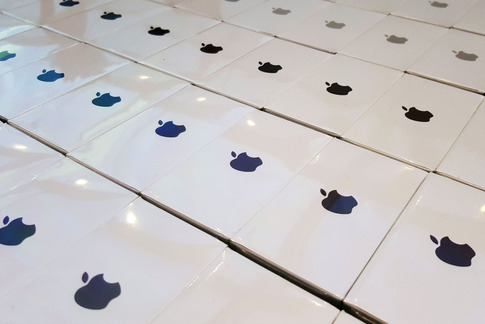At a trial in Washington that started on Friday, a staff of the US International Trade Commission recommended that a trade judge find that Apple infringed at least one of Qualcomm patents.
The findings of the ITC staff alleges that Apple violated one of Qualcomm’s patents around battery-saving technology.
While the ITC staff’s opinions are not binding, if the judges follow them it could lead to blocking the import of some iPhones, said the report.
Nearly a year ago Qualcomm filed a complaint against the iPhone-maker, asking the commission to ban the import of iPhones containing rival chipmaker Intel’s modem chips, which help mobile phones connect to wireless data networks.
In previous filings in the ITC case, Apple has argued that Qualcomm’s patents are invalid and that, regardless, the judge should not ban Intel-based iPhones because it would give Qualcomm a monopoly on modems in the United States and drive Intel out of the modem business.
“Qualcomm is selectively asserting its patents to target only Apple products containing Intel chipsets — even though its patent infringement allegations would apply equally to Apple products containing Qualcomm chipsets — in an attempt to use the ITC as another mechanism for perpetuating its ill-gotten monopoly position,” Apple wrote.
Over a dozen legal cases between Apple and Qualcomm are currently pending worldwide, all of them linked to a licensing dispute over various technologies.
Apple had previously claimed that Qualcomm abuses its “monopoly power” to demand high royalties and force chip buyers to license patents. It also argued that that some of Qualcomm’s practices are illegal, and the chipmaker has paid billions of dollars in fines from antitrust regulators in several countries, though it is still appealing some of those rulings.
More than its legal battles with Apple, Qualcomm has run afoul of governmental regulators in certain jurisdictions such as the EU, which leveled hefty fines against the chipmaker for illicit dealings.
The ITC case is expected to conclude in January.





